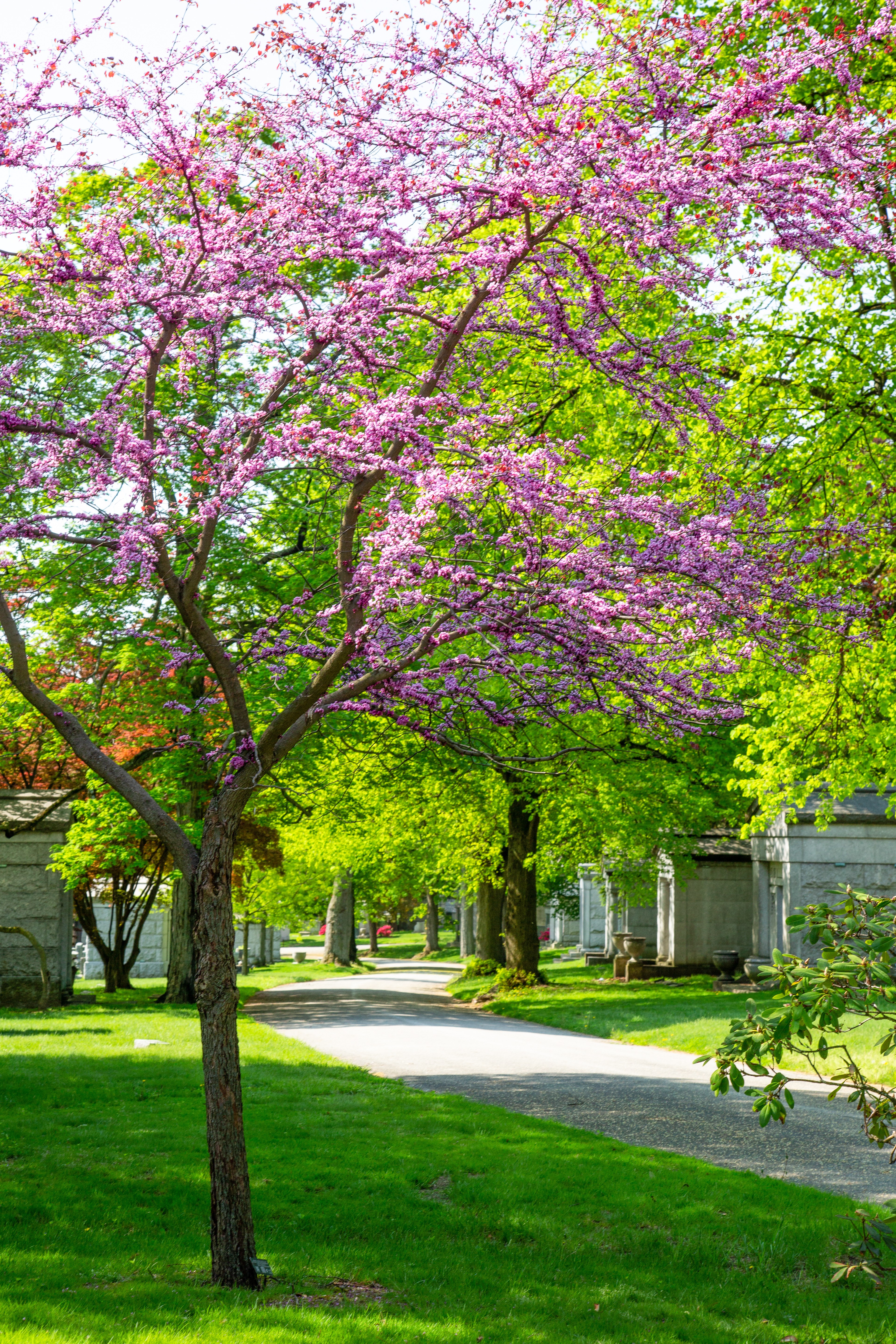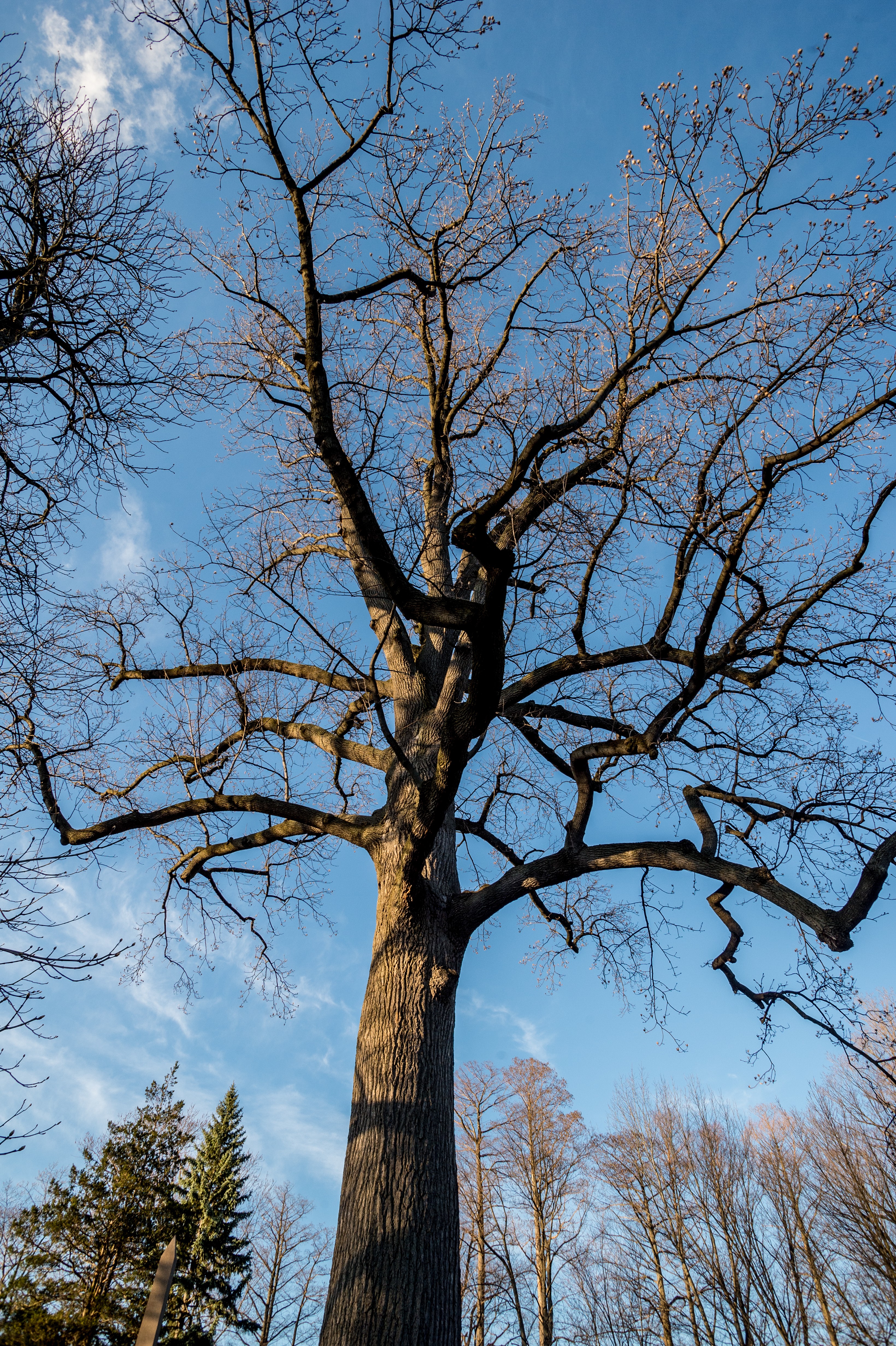Did you know eighty-five percent of plants require pollination by insects, birds, or other pollinators? Or that bees pollinate more than a third of our fruits and vegetables? Pollinators are an essential part of our everyday life. Without them, our gardens and the produce section of our grocery stores would look shockingly sparse.
As modern landscapes change, bees and other pollinators are fighting to survive. The loss of habitat, host plants, stressors such as pesticides, pathogens, competition with invasives, and the changing climate has led to declines in pollinators worldwide.
According to Rob Kraker, district manager of Davey Tree in Southeast Nashville, “people across the country can create habitat in their communities by planting native trees... From our backyard landscapes to public spaces, there are endless opportunities to provide season-long resources for pollinators,” says Kraker. “While most people think first of planting herbaceous native flowers, trees, too, can make a difference. One tree can produce thousands of pollen and nectar-rich blooms.”
There are many native trees you can add to your property that will look great, benefit you and support pollinators. Here are some of Kraker’s favorite trees that benefit pollinators. These trees will thrive in the bay area, help manage stormwater runoff, and more.



Top Five Trees to Attract Pollinators
Native Oaks
Native oaks, Tennessee’s black oak, white oak, pin oak, or swamp chestnut oak, support pollinators throughout the year, mainly by providing winter shelter and healthy habitat. Oaks give more than five hundred pollinator species a home and enable them to return for years to come.
Southern Magnolia
Bees love this tree’s vibrant white to cream-colored flowers that are filled with pollen. Then, later in the spring, birds enjoy the tree’s yummy fruit.
Eastern Redbud
This tree’s fuchsia blooms are some of the first to blossom in spring. Bees of all kinds, including honey, bumble, and mason bees, enjoy their pollen and nectar. The rest of the year, birds and insects appreciate what this tree offers.
Black Gum
A black gum tree provides colorful pops of foliage to the fall landscape. But its yellow, red, and orange leaves appeal to the bee population entirely differently. The flowers provide a food source for bees during springtime, and the bark offers a safe home.
Tulip Poplar
The state tree of Tennessee, this large tree has showy, tulip-like flowers that give the tree its name. Not actually a poplar, this tree is a member of the magnolia family. Its greenish-yellow blooms and sweet nectar attract pollinators.
Best Practices for Planting Trees
Location, location, location!
First, pick a safe spot where your tree will have room to grow. Take the size of the tree at maturity into consideration. Make sure the tree is planted at least fifteen feet away, even when fully grown, from above-ground wires, underground pipes or wires, and permanent structures like your roof or garage.
Dig, dig, dig!
Make the planting hole two to three times larger than the root ball. This will allow the new tree’s roots to spread out. Then position your tree so the area where the roots meet the trunk is at or slightly above the ground.
Water, water, water!
During the first two weeks, deeply water every day. Then, water once a week for the first year while your tree still has its leaves. Be sure to take rainfall into account before watering.
Mulch, mulch, mulch!
Cover the planting hole with two to three inches of shredded hardwood or leaf mulch, keeping it two-three inches away from the trunk. Do not over-mulch the tree or “volcano” mulch.
Kraker explains, “It’s great to see people caring and creating more habitat for pollinators.”
Once you have picked the perfect tree, keep pollinators coming back by providing proper tree maintenance. Planting a tree is an investment in your property, community and environment that will truly pay off for years.
For more information or to schedule a free consultation, contact the tree experts at your local Davey office: davey.com/local-offices/southeast-nashville.
Davey Tree Company
The Davey Tree Expert Company, established in 1880 and headquartered in Kent, Ohio, provides research-driven tree services, grounds maintenance and environmental consulting for residential, utility, commercial and environmental partners in the U.S. and Canada. With 11,000 employees, Davey Tree is the eighth largest employee-owned company in the U.S. Visit www.davey.com to learn more about Davey Tree and discover your next career opportunity.






















